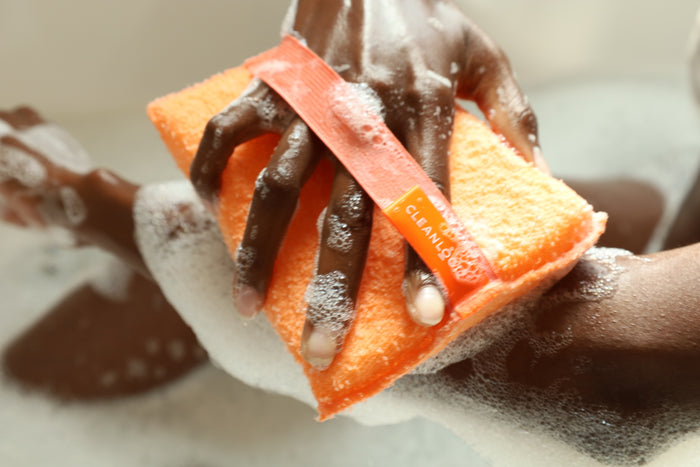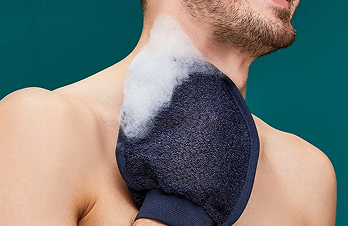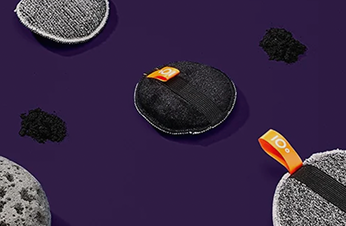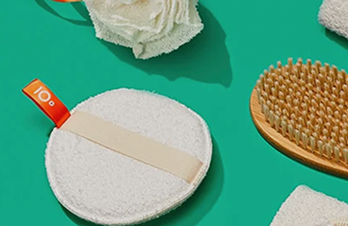We know how frustrating it is to wake up to a big bump or even several tiny bumps on your face or body. The truth is, no one likes having breakouts or dull skin. We all want that smooth, bright, and vibrant skin.
Your skin naturally sheds dead skin cells every 30 days, and sometimes the dead cells don't clear entirely and start to pile up. This then leads to dull, dry, and flaky skin that can further lead to clogged pores. That's why exfoliation is vital and should be a part of your skincare routine.
What is exfoliation?
Exfoliation can be described as the process of removing dead skin cells from the surface of your skin. It allows new cells to surface your skin and whisks away any dirt or debris deep within your pores.
Exfoliation can be done on not only your face but on other parts of your body too. You can do it with chemicals such as hydroxy acids and retinol or with the use of physical exfoliants. Physical exfoliants are exfoliating products that require manual scrubbing. Examples include body brushes, cleansing scrubs, and loofahs. They make your skin look brighter and more healthy.
The best part? You don't have to go anywhere to enjoy all these benefits as you can exfoliate your skin at home with just a muslin washcloth and a Do-It-Yourself (DIY) scrub or Over-The-Counter (OTC) products.
And that's not all; they are called DIYs because you most likely have all the ingredients you need to make an efficient DIY scrub in your kitchen. For example, did you know that sugar and milk contain acids that can exfoliate your skin? Even coffee can give you that glowing, vibrant skin you desire.
And if you're the active type or don't want to do it yourself, you can get professional exfoliation. The good news? You get immediate results both ways!
Benefits of exfoliation
- The very first thing you notice when you exfoliate your skin is that it looks brighter.
- Exfoliation is an excellent treatment for those with oily skin.
- Exfoliating your skin makes it easier to absorb the skin products you apply, thereby improving their effectiveness.
- Regular exfoliation can also stimulate collagen production. Collagen is the protein that promotes skin elasticity and vibrant-looking skin.
- It also minimizes sagging skin and the appearance of fine lines and wrinkles.
- Regular exfoliation helps in unclogging your pores, thereby preventing breakouts.
- Chemical acids used for exfoliation help with mild hyperpigmentation, age spots, and even scars.
- Beta Hydroxy Acids(BHAs) are chemicals that you can use to treat sun damage.
- Salicylic acid, a well-known exfoliant, has antibacterial and anti-inflammatory properties. In addition, it can be used as an acne treatment to calm general redness and inflammation on your face.
- Salicylic acid is excellent for those with sensitive skin.
Exfoliating Frequency
A lot of people have asked,
"When should I exfoliate?"
"How frequently should I exfoliate my skin?"
That's what We're about to tell you.
Concerning when you should exfoliate, the answer lies with you. Your personal preference and daily routine are the determinants. It depends on what time of the day is more convenient for you and your skin type needs.
If your skin tends to look dull and oily in the mornings, you can choose to exfoliate your face before starting your day. Then, if it's convenient for you at night or you only have time at night, you can do it at that time. As a bonus, it will also help you remove any remaining makeup or debris on your face.
Now, how often should you Exfoliate?
The answer depends on your skin type. We have regular, dry, oily, combination, and sensitive skin types.
- If your skin is not easily irritated and you've noticed that you can try different skincare products and techniques without any adverse effects, you have normal skin. Exfoliate 3times a week to get soft and smooth skin.
- If your skin feels flaky or rough, you have dry skin, so use mild exfoliants once or twice a week.
- If some areas on your face tend to be oily and while others are dry, it means you have combination skin. Exfoliate 2-3times a week
- If your skin is always shiny and feels greasy, you have oily skin, and you can use products containing salicylic acid 2-3times a week.
- If your skin quickly gets irritated, especially after using new products, you have sensitive skin. For your skin type, under-exfoliating is way better than over-exfoliating, so use gentle chemical exfoliants like glycolic acid and lactic acid once or twice a week.
Things to do after exfoliating
It would help if you always took care of your skin, especially after exfoliating. First, thoroughly rinse away the product with warm water, then pat your skin with a dry towel. Exfoliating tends to dry the skin, so you must apply a moisturizer and protective sunscreen to help your skin retain moisture and give you that smooth, radiant skin.
Choosing to use OTC products or DIY scrubs, or even professional treatments is all up to you and what your skin needs. If you aren't sure of what to use, you can also consult your dermatologist, who is more capable of assessing and choosing the best methods or products for your skin. He will also help you develop a skincare routine that will benefit your skin type and lifestyle.
Exfoliate the right way and enjoy your beautiful skin!
Cleanlogic Bath & Body Sensitive Skin Dual-Texture Facial Buffers











0 comments